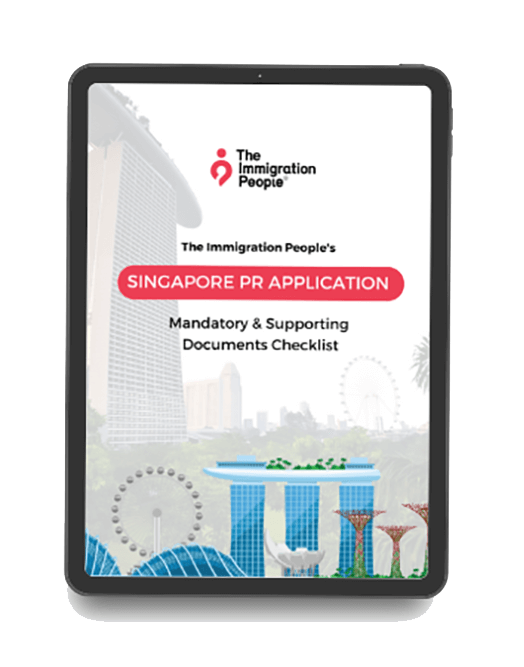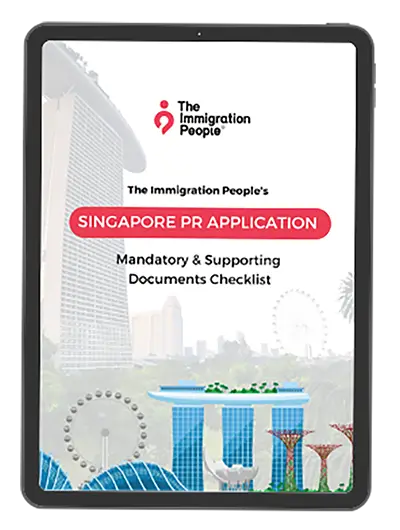The Comprehensive Economic Cooperation Agreement (CECA) is a free trade agreement between Singapore and India, aiming to strengthen bilateral ties by eliminating tariff barriers, improving service access, and promoting cooperation in various fields.
CECA: A Window into the South Asian Country's Market
The CECA serves as a crucial gateway for Singapore into India's large consumer market. As a thriving South Asian country with a population of over a billion, India presents vast opportunities for trade and commerce.
Indian markets offer abundant prospects for Singaporean businesses, particularly in sectors like Information Technology, manufacturing, and pharmaceuticals.
The Role of Indian Professionals and Companies

Under CECA, Indian professionals in 127 specific job categories, including accountancy and engineering, receive a facilitated entry for temporary business visits and work in Singapore.
This provision has enabled many skilled Indian nationals to contribute significantly to Singapore's economy.
Similarly, CECA provides Indian companies, including Indian banks, more accessible entry into the Singaporean market. It has also facilitated Singapore service providers to access the Indian market more easily.
Clarifying Misconceptions: Indian Nationals' Unfettered Access?
Despite some misconceptions, CECA does not provide Indian nationals unfettered access to Singapore or its job market.
While CECA facilitates movement, every professional or worker from India still has to meet the work pass criteria set by the Ministry of Manpower in Singapore, much like any foreign professional from a country without such an agreement.
The Benefits for the Indian Government and Singapore
From the perspective of the Indian government, the CECA has allowed Indian businesses to expand their operations in a highly developed and competitive market like Singapore. At the same time, Singapore benefits from tariff concessions, thereby making Singaporean products more affordable and competitive in the Indian market.
Work Pass Permits for Indian Nationals
Under CECA, Indian nationals in certain professions may experience facilitated procedures to acquire work pass permits in Singapore. However, the process is still stringent and requires applicants to meet specific criteria set by Singapore's Ministry of Manpower (MOM).
There are various types of work passes, and the eligibility requirements for each differ. The two most common work passes are the Employment Pass and the S Pass.
-
Employment Pass:This is for foreign professionals who have a job offer in Singapore. Candidates must earn at least SGD 5,000 a month (for non-financial services sector) and SGD5,500 a month (for financial services sector), and have acceptable qualifications, usually a good university degree, professional qualifications, or specialised skills.
Furthermore, from 1 September 2023, new Employment Pass (EP) candidates need to pass the points-based COMPASS in addition to meeting the abovementioned EP qualifying salary. You may read up more about the COMPASS 2-stage eligibility framework on MOM's website here: https://www.mom.gov.sg/passes-and-permits/employment-pass/eligibility
-
S Pass:This is for mid-skilled foreign employees (technicians) who have a job offer in Singapore. Candidates must earn at least SGD 3,150 a month (for non-financial services sector) and SGD 3,650 (for financial services sector), have relevant work experience, and possess a degree or diploma. Some technical certificates can also qualify, but these must include at least one year of full-time study.
For both these work passes, the employer in Singapore must apply on behalf of the candidate. Furthermore, the Ministry of Manpower assesses each application on its own merits, based on the applicant's qualifications, salary, skills, job type, and the employer's quota for hiring foreign employees.
In conclusion, while CECA simplifies procedures for specific Indian professionals, acquiring a work pass permit in Singapore remains a selective process that ensures quality foreign workforce participation in Singapore's economic development.
Facilitating Business for Indian Companies

CECA significantly eases the process for Indian companies to establish their businesses and expand operations in Singapore, which has consistently been ranked among the world's top locations for ease of doing business. Here's how:
-
Easier Market Access:CECA provides Indian companies with better access to the Singapore market by reducing or eliminating tariffs, thus making Indian products and services more competitive in Singapore.
-
Facilitation of Investments: The agreement encourages and protects investments made by Indian companies in Singapore, providing them with a more secure and predictable operating environment.
-
Streamlined Regulations: CECA ensures the reduction of regulatory barriers to trade and investment, making it more straightforward for Indian businesses to operate in Singapore.
-
Recognition of Standards: The agreement facilitates the mutual recognition of standards and qualifications in professional services such as accountancy and architecture. This recognition reduces the procedural hindrances Indian service providers may face.
-
Dispute Resolution: CECA provides mechanisms to resolve any disputes arising out of business operations, thus ensuring a fair and efficient business environment.
-
Double Tax Avoidance: Both countries have a Double Taxation Avoidance Agreement (DTAA) in place, which means Indian businesses operating in Singapore can avoid being taxed in both countries.
Moreover, Singapore's robust infrastructure, strategic geographic location, and status as a financial hub provide Indian companies with a gateway to the wider Southeast Asian market. Consequently, Indian businesses can use Singapore as a launching pad to expand not only in the city-state but also in the broader ASEAN region. The streamlined process, protection of investment, and favourable business conditions brought forth by CECA truly support Indian companies' growth and success in Singapore.
Conclusion
In conclusion, the Comprehensive Economic Cooperation Agreement (CECA) between Singapore and India is a strategic agreement that has boosted bilateral trade and strengthened relations.
It's important to note that while CECA eases the immigration process for certain Indian professionals, it does not provide unrestricted access to Singapore's job market for Indian nationals. The agreement is, in essence, a cooperative effort to stimulate economic growth and progress in both countries.
Frequently Asked Questions On Singapore PR Application For Spouse
Can an LTVP holder apply for Singapore PR?
The foreign spouse of a Singapore PR or citizen who is an LTVP holder can apply for Singapore PR under the sponsored scheme.
A married EP holder and LTVP holder couple can also apply for Singapore PR, with the EP holder being the main applicant.
ICA will evaluate each PR application fairly. Want to know your eligibility chances? Let us calculate for you: https://www.tip.com.sg/pr-application-e-preliminary-profile-analysis.html
What Is the Success Rate for Spouse PR Applications in Singapore?
The success rate for spouse PR applications in Singapore varies based on numerous factors, such as the applicant's qualifications, financial standing, and family ties. The ICA does not release specific success rates, as each application is assessed case by case.
Can My Spouse Work in Singapore While Waiting for The PR Application Outcome?
Your spouse can work in Singapore while waiting for the PR application outcome if they have a valid work pass, such as an Employment Pass or S Pass.
Does My Spouse Need to Be in Singapore During the Application Process?
No, your spouse does not need to be physically present in Singapore throughout the entire application process. However, if the ICA requires, they may need to be in Singapore for certain stages, such as submitting biometrics or attending an interview.
Can My Spouse's Children from A Previous Marriage Also Apply For PR?
Your spouse's children from a previous marriage can apply for PR if they have legal custody over them. You will need to provide custody documents in the PR application.
The ICA will assess their eligibility based on the child's age, relationship with the applicant, and financial support.
Can My Spouse Apply for Citizenship After Obtaining the PR Status?
Yes, after obtaining permanent residency status, your spouse can look forward to applying for Singapore Citizenship.
The selection criteria for a Singapore Citizenship application are much stricter.
They must meet minimum eligibility criteria, which typically include being a PR for at least two years and not losing the PR status due to a case of an expired Re-Entry Permit (REP).
But before considering citizenship status, we encourage keen applicants to ensure that they consistently demonstrate good character, have strong family ties, and are well financially.
Will My Spouse Need to Complete National Service If They Are PR Approved?
From our experience handling PR applications for adult male applicants (typically in their 30s and above) under Sponsored Spouse Scheme, they are generally exempted from the National Service as they are not suitable for full-time NS at that age and did not enjoy any benefits before their PR.
Under the Enlistment Act, all male Singapore Citizens and Permanent Residents, unless exempted*, must serve National Service (NS). NS-liable persons are required to register for NS upon reaching 16 and a half years old and will be scheduled for enlistment at the earliest opportunity upon reaching 18 years old.
Deferment from NS for university studies will not be granted regardless of whether such studies have begun. Those pursuing full-time GCE ‘A’ Level or Polytechnic Diploma studies (or equivalent) may be granted deferment if they meet the deferment conditions stipulated by the Ministry of Defence.
*All male applicants must access www.cmpb.gov.sg for information on NS deferment, the pre-enlistment process and Exit Permit requirements before proceeding with the application.
Can My Spouse Maintain Their Existing Citizenship After Obtaining Singapore PR?
Yes, your spouse can maintain their foreign citizenship after obtaining Singapore PR.
However, if your spouse later decides to apply for and is granted the Singapore citizenship status, they must renounce their original citizenship, as Singapore does not allow dual citizenship.
Does My Spouse Need a Job Offer in Singapore to Apply For PR?
No, a job offer is not a strict requirement for a Singapore permanent residency application under the sponsored scheme.
However, having a job or a job offer in Singapore can strengthen your spouse's PR application, demonstrating their ability to contribute to the local economy and support themselves and their family.


